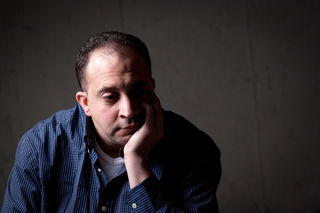Coronavirus Disease 2019
The 3 Best Habits to Cultivate During the Pandemic
"Go inside."
Posted April 1, 2020

As a performance psychologist, I train people to be their best.
What a challenge in these challenging times. The coronavirus pandemic is worrying everyone around the globe. How can anyone be his or her best when battling an invisible enemy? Imagine: A tiny microbe has brought the entire world to a standstill. How can we be our best in these extreme circumstances?
My immediate reaction to the directive "shelter in place" was distinctly negative. I was triggered into an old anxiety that dates back to my childhood in the ‘50s, when the U.S. was in a cold war with Russia. There was a tsunami of fear about a nuclear attack. “Shelter in place” meant “build a bomb shelter.” I couldn’t fall asleep at night. I was scared. The phrase resurfaced again during the wave of school shootings.
Instead of “shelter in place,” I’m going to suggest we consider a different, more helpful directive: “Go inside.” This has a double meaning: Go inside your home, and go inside yourself.
Going inside is a first step. But in order to take this step effectively, you need to cultivate the three best habits for dealing with stress.
Habit 1: Stop worrying. I’d venture to guess that everyone around the world, at some point, worries about the pandemic. Am I safe? What about my loved ones? What will I do if I get sick? Is our government protecting us? How am I going to pay the bills? Worrying in such extreme circumstances is a natural and expected reaction to the very real and highly troubling current events.
That said, let’s look at what happens when you worry.
When I was in graduate school, a professor of mine said something that has stuck with me for the last 40 years: “Worrying only produces more worrying.” Think about it: If you worry and continue to worry, what happens? Only more worrying. Your insides get tied up in knots, your blood pressure rises, you feel exhausted and helpless.
While worrying is a natural and expected reaction, staying worried is unproductive. Stop worrying. But how do you do that? First, you have to become more aware of the moments when you start worrying.
Say you’re thinking about a distant relative or friend, maybe someone who is vulnerable to the virus, and you start worrying about them. As soon as you become aware, stop. See a stop sign, a stoplight, hear an alarm bell—simply stop the worry and ask yourself: “Is my worrying leading to anything productive?” The answer will be “No.”
Habit 2: Get yourself back in the present. Anxiety (in the form of worrying) is usually related to the past or the future. You’re wishing you’d done something differently yesterday or last week, or you are afraid of what’s coming tomorrow or next month. Why didn’t we stock up on masks and sanitizer when they were in the stores? What’s going to happen if I’m still out of work next month? Worrying takes you out of the present. The past is done and the future hasn’t come yet. The present is the field of action. Right now.
Getting yourself back in the present is simple. So simple, in fact, that it eludes many people.
It requires three basic actions: breathing, grounding, and sensing. Breathe down to your belly, feel yourself supported by the chair and floor, feel the different textures of clothing on your body. These are the three classic tools for calming down and becoming present.
Next time you start worrying (and stop!), check out what you are doing with your body. Most likely you are holding your breath or you are breathing very irregularly; you’re not grounded and you’re “in your head” (in other words, not in your senses).
Once you stop worrying (Habit 1), immediately cultivate the habit of getting back into the present (Habit 2): breathe, ground, sense. You will find that when you do this the worrying will not only reduce, it may, even for a moment, disappear.
Habit 3: Consider what you can do for someone else. Now that you’ve stopped worrying and gotten yourself back into the present, what next? One of the most healing things you can do is help someone else. Think of someone you know—a friend, a relative, a business colleague, someone who may be vulnerable to getting sick, someone you haven’t seen for a long time. Close your eyes. Imagine that person. See, right now, what you can do for them, to make their life a bit easier, to help reduce their stress.
Considering someone else, and then actually taking action that will benefit them, is one of the most healing activities for human beings, in every culture, through time immemorial: “Love thy neighbor as thyself,” “Reach out and touch someone.” I once heard a philosopher say, “We are meant to be givers, not takers.”
You can be your best when you cultivate these three habits. Find yourself worrying? Stop! Bring yourself back to the present. Consider what you can do for someone else. Take action in that direction.
You will be using your time and energy well. You will be rising to the challenge. You will be your best.




